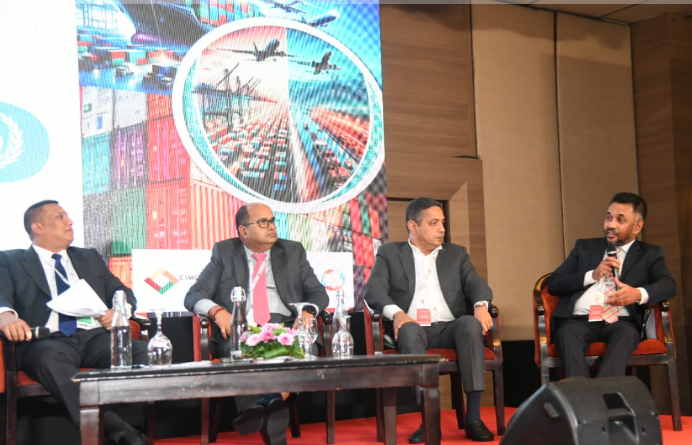“Under the port’s green energy initiative program, a project and process to use the land owned by the Sri Lanka Ports Authority (SLPA) and the Port of Colombo (POC) for solar energy harvesting is currently underway. Ganaka Hemachandra, Sri Lanka Ports Authority ( SLPA) Managing Director Colombo International Maritime & Logistics held from 27th to 29th November 2024 He made these comments during a panel discussion on ‘Future Fuels, Planet and Shipping – Clean Energy Efficient Integrations and Green Robotics in Ports’ at the Cinnamon Grand, Colombo.
he further mentioned that currently the port consumes 25% of the total energy consumption of the city of Colombo, which is nearly 50 megawatts.
“It is critical to discuss how we can implement effective measures to immediately address greenhouse gas emissions in all port-related activities. Currently about 42% of the total energy generation in Sri Lanka is from green sources and the rest is from non-green sources. This is a serious issue that needs immediate attention and action,” he said.
Ganaka Pemachandra pointed out the need to encourage innovation in the domestic port sector and simultaneously adopt advanced technologies to produce green energy for engineering future needs and ensure that the sector remains environmentally sustainable.
“Colombo Port is also exploring the implementation of state-of-the-art technologies to reduce both energy wastage and greenhouse gas emissions. Achieving this is no small feat due to the significant investments required, and we are committed to aligning with the global goals outlined in the IMO’s 2030-2050 Agenda,” he added.
He also revealed that Colombo Port’s Eastern Container Terminal (ECT), the port’s first semi-automated terminal, is set to integrate clean energy into its operations. The terminal will also use green robotics and AI-based technologies for ship and yard design. By 2025, the port will also be equipped to provide green shore power for vessels calling at its terminals.
“Past constraints hindered our ability to establish ourselves as a fossil fuel filling station. However, with emerging opportunities, we must consider how our port will evolve as a green energy refueling hub as we transition from the present to the future. Optimum utilization of energy is a must now,” he said.
The global call to reduce carbon emissions and other harmful gases has created a demand for new energy sources to effectively power ships and ports, thereby reducing the carbon footprint that affects the health of the planet. This transition involves every stakeholder in the global supply chain, from consumers to producers and intermediaries. Industry must adopt sustainable green energy solutions, advanced robotics and new infrastructure to support global trade.
Endorsed by the Ministry of Transport, Highways, Ports and Civil Aviation and the Ministry of External Affairs, the conference was organized by CIMC Events (Pvt) Ltd.





